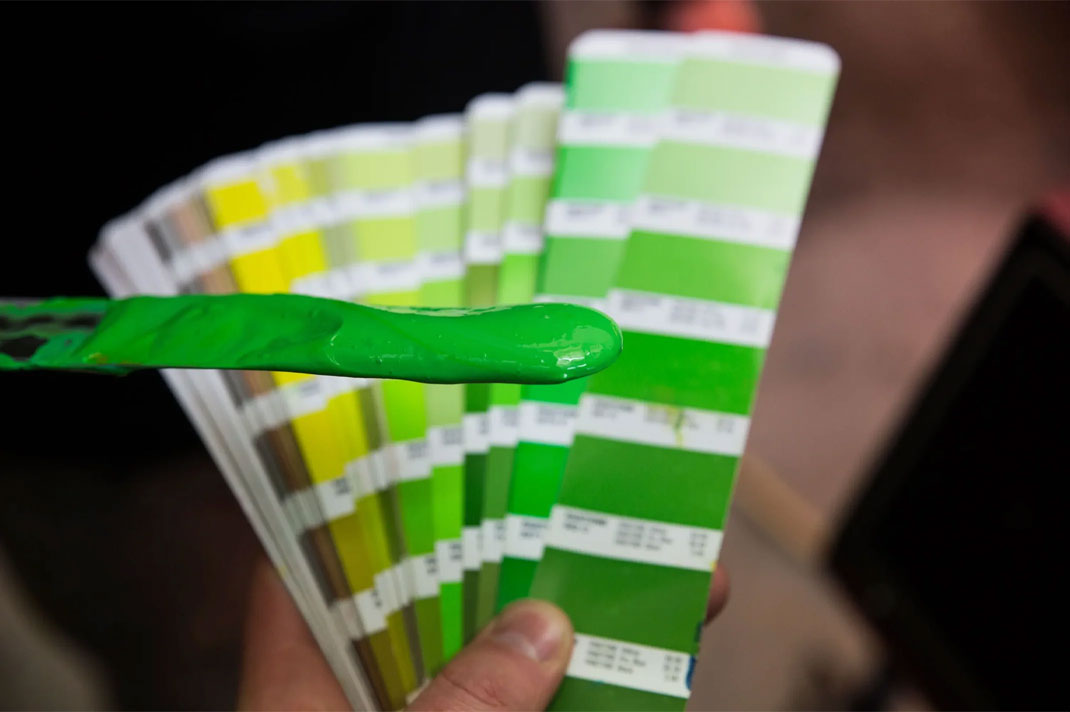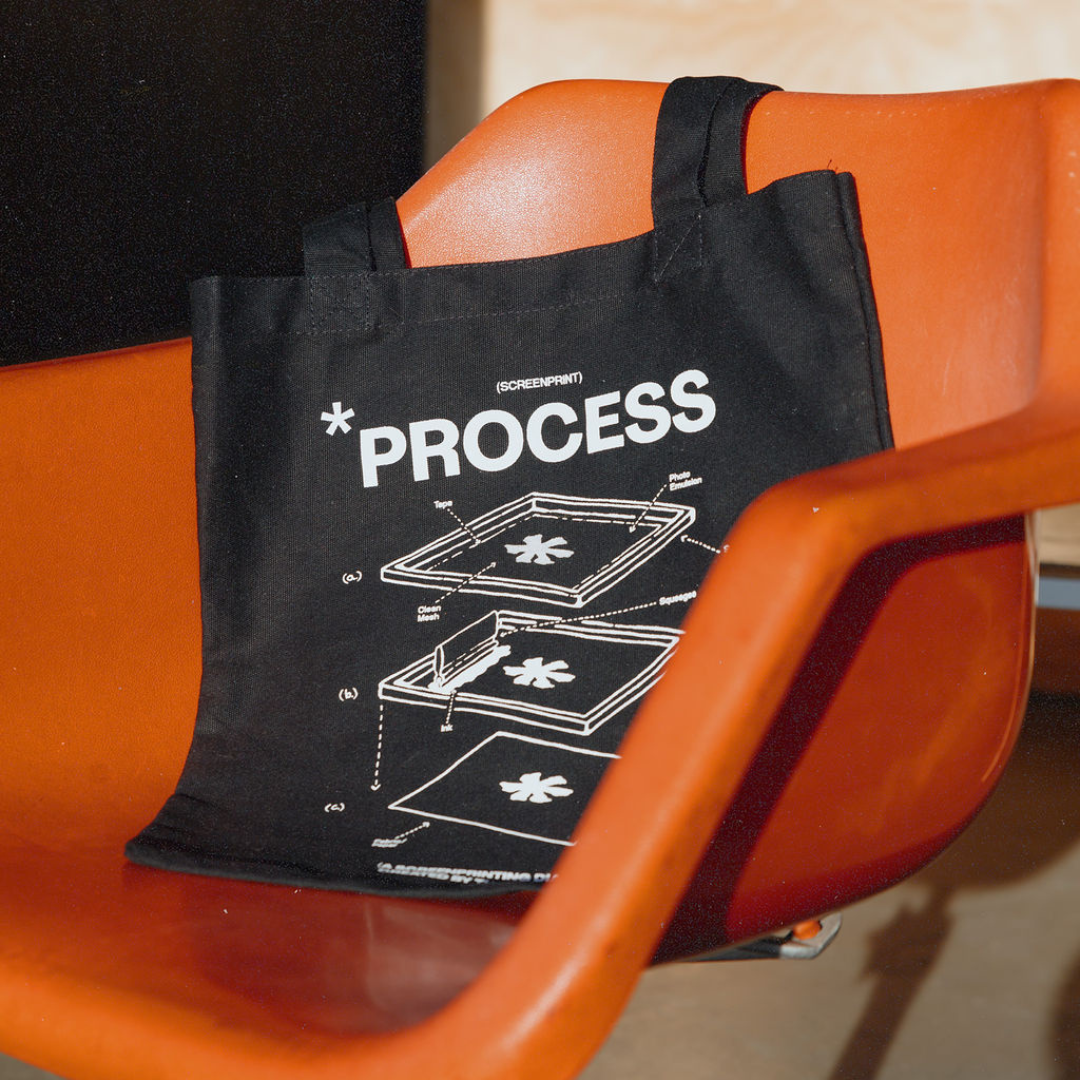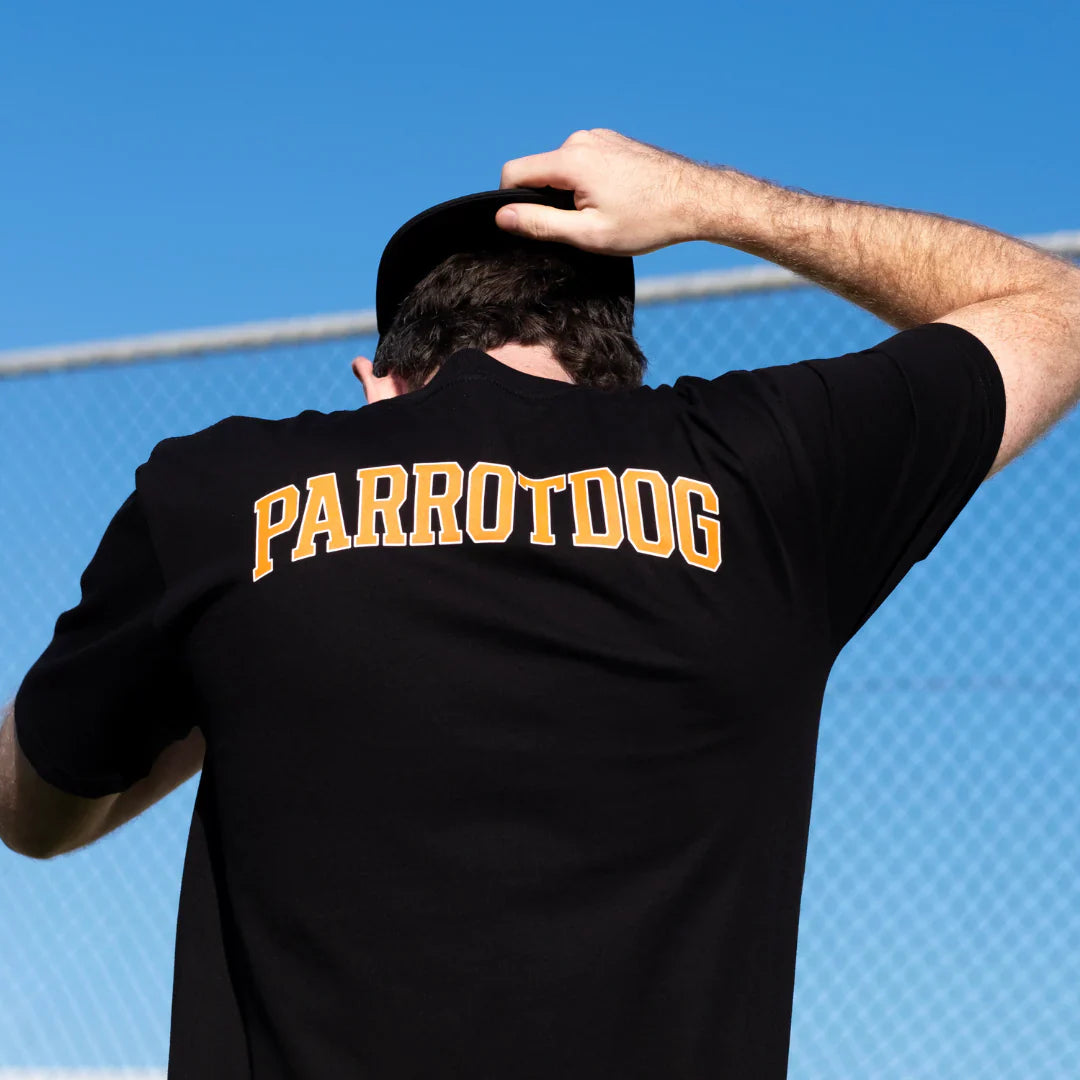
Going Eco: The Print Room's Journey To Becoming An Environmentally Friendly Print Shop
Being an 'Environmentally Friendly T-shirt Printer' is something we have always aspired to be, but, until recently, we didn't have the knowledge or bravery to take the leap.
When we employ staff at The Print Room, we not only employ people that add to our business, we look for staff who have values that we align with. After a team building and values session with our team, our collective passion for the environment was highlighted. Right then and there, we made the decision to transform The Print Room into one of New Zealand's first 'green' t shirt printers. We're still on our journey and are far from perfect, but we are getting there, and we're pretty chuffed with the progress we have made.
18 months ago, walking through our shop floor was like following a 1987 Toyota Hilux diesel at full throttle. Clouds of plastisol would be lingering above the tunnel drier and the smell was enough to put you off your smoko. Why put up with this you ask? Well, like the majority of the screen printers in Australasia, this was the easiest and cheapest way to screen print t shirts. We were never taught how to use water-based inks and could not get access to a quality water-based ink supplier in New Zealand to meet our t shirt printing needs.
For years the screen printing industry has been price point driven. Plastisol inks have ruled supreme; in New Zealand, they are cheaper to buy, cheaper to print with and easier to work with. Due to the increased price to print with water-based inks, we did not think our customers would be prepared to pay for this.

The challenges in using water-based inks aren't just cost related. Printing with water-based inks takes a lot of skill to get right. Technically speaking: it is difficult to correctly cure the inks; more involved creating a white base that gives the colour high opacity; the Pantone colour matching process; how best to stop the ink drying in the mesh and so on.
To cut a long story short, we put our heads down and got to work.
We left the country with the intention of finding a water-based ink range, and supplier, that met our application and finishing needs and to get the appropriate training to use these inks on a daily basis.

It took a lot of Saturdays on the shop floor, trialling and testing the new range, to get the processes down. After months of testing, we started to get the hang of this water-based thing and began offering it to our clients.
The softer feel of the print had our clients going crazy for more water-based printed tees and after educating them on the environmental benefits, they were hooked.
Water-based inks are taking over our ink shelf and we are super chuffed to now print exclusively with waterbased inks.

The ink is only one part of our eco-friendly vision. We have also turned the focus to our screen reclaim & washup chemicals. We have found suppliers of soybean-based cleaning products to replace the gnarly, turpentine-based chemicals we formerly used to clean plastisol inks. We also swapped out our aerosol pallet adhesive spray for a water-based pallet adhesive. Collectively, these products are much safer for our staff to use and don't give off the heavy fumes that our old cleaning chemicals did.
Another way we reduce our footprint is to recycle any misprinted or faulty t-shirts by cutting them into cleanup rags, but we recently went one better.
Mornington School is a local primary school that Chris teaches at. They wanted to create an environmentally friendly tote bag that recycled an old product to sell at their school fair. They crafted reusable tote bags from damaged and misprinted tees we supplied by cutting off the sleeves, cutting slits along the bottom hem and tying knots along the bottom. We are stoked to have been a part of such a creative and functional initiative lead by local kids!

We follow the usual recycling practices for recycling any excess cardboard, paper and plastic at our local recycling centre. Instead of using custom branded new boxes to ship out orders, we re-use the boxes that the garments arrive in from our suppliers. Any small orders are sent out using R3 compostable and biodegradable courier bags, meaning we don't have to use plastic.
The crew are avid composters, using the fruits of their labour in both their home gardens and at work. We have a recycling system for food scraps and coffee grinds that is shared around each member, week to week. Our studio offers a lot of natural light and heat, which we've made the most of this by trying our hand at growing a crop of veg and nurturing some indoor fauna.

The journey to becoming an environmentally friendly print house is still in its early days, but we are proud of what we have achieved so far and look forward to what is to come.
Benefits of using water-based inks:
1. Our Inks are free from harmful, toxic chemicals making them safer for the environment, our production staff & the wearer.
2. Our inks are fast curing and require low temperatures & quick flash times, enabling us to reduce our energy usage.
3. We use higher mesh count screens for our water-based inks, which enables us to put down less ink than we traditionally would with plastisol inks, which is great for the t-shirt wearer (you get a softer print!) but also for reducing ink use.
4. Water-based inks have a very soft hand feel and high stretch performance, which means they wear really well over time.
5. We've been able to remove harmful solvents from our screen cleanup & reclaim.


